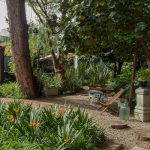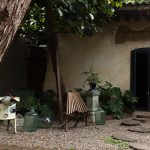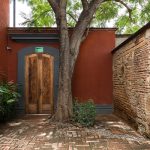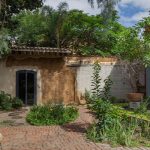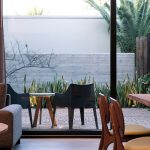El Callejón boutique hotel is located in the old Xochimilco neighborhood on the north side of downtown Oaxaca. Step out to explore the city´s Zócalo (main square), churches, and shops, stopping to taste the amazing flavors Oaxaca is celebrated for.
Painted with adobe, the hotel´s exterior recalls the material used to build houses for hundreds of years that can still be spotted around the city. The spaces are decorated with pieces made by the artisan communities of Oaxaca, with peaceful outdoor gardens featuring stone, wood, and plenty of leafy plants.
El Callejón offers 12 guest rooms set across 4 towers, some with terraces or balconies, kitchenettes and living rooms. Simple, clean lines work with a backdrop of muted colors, brightened with pops of red on textiles and decorative details.
Guests can sip on mezcals and Oaxaca-inspired cocktails on the garden´s wooden deck, where dishes from the kitchen can also be enjoyed. The hotel uses herbs and vegetables grown in its own small orchard, as well as baking bread daily and serving handmade ice cream and jams.



 Type: Boutique
Type: Boutique No. of Rooms: 12
No. of Rooms: 12